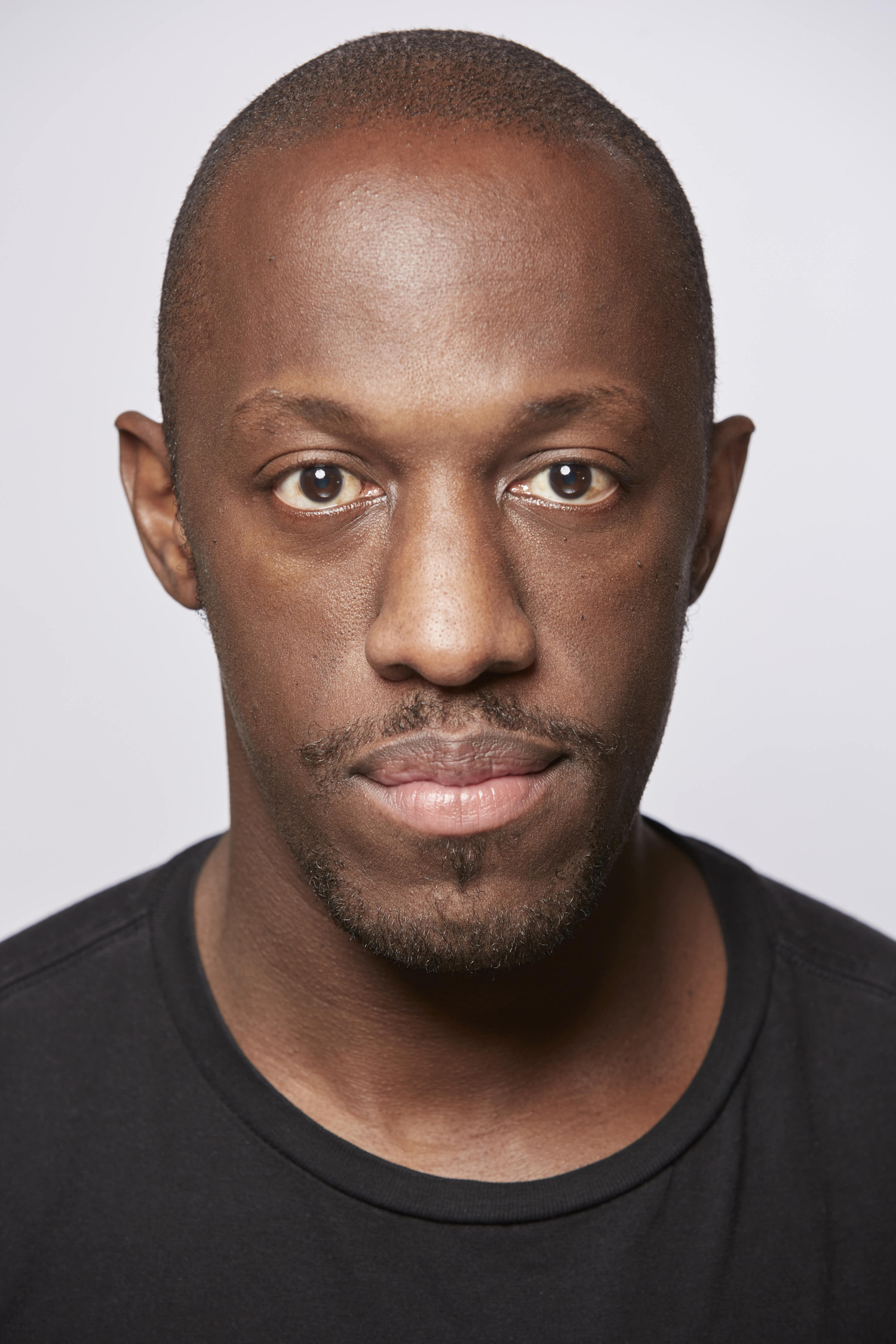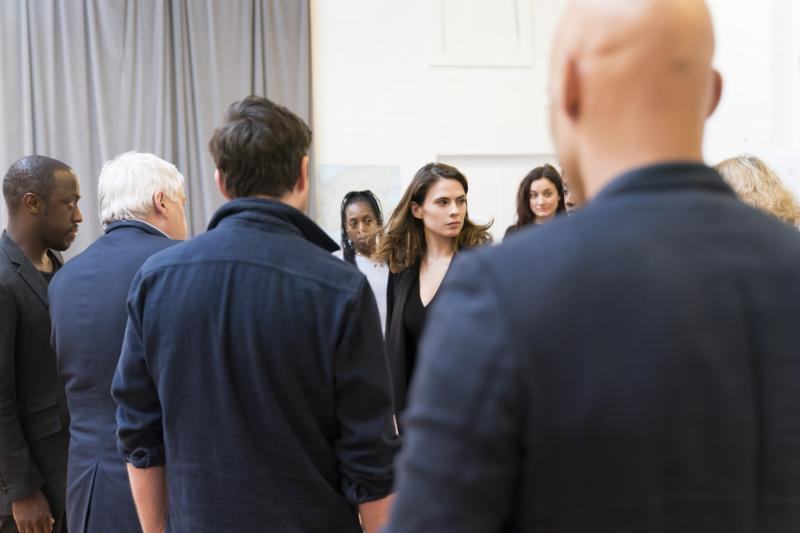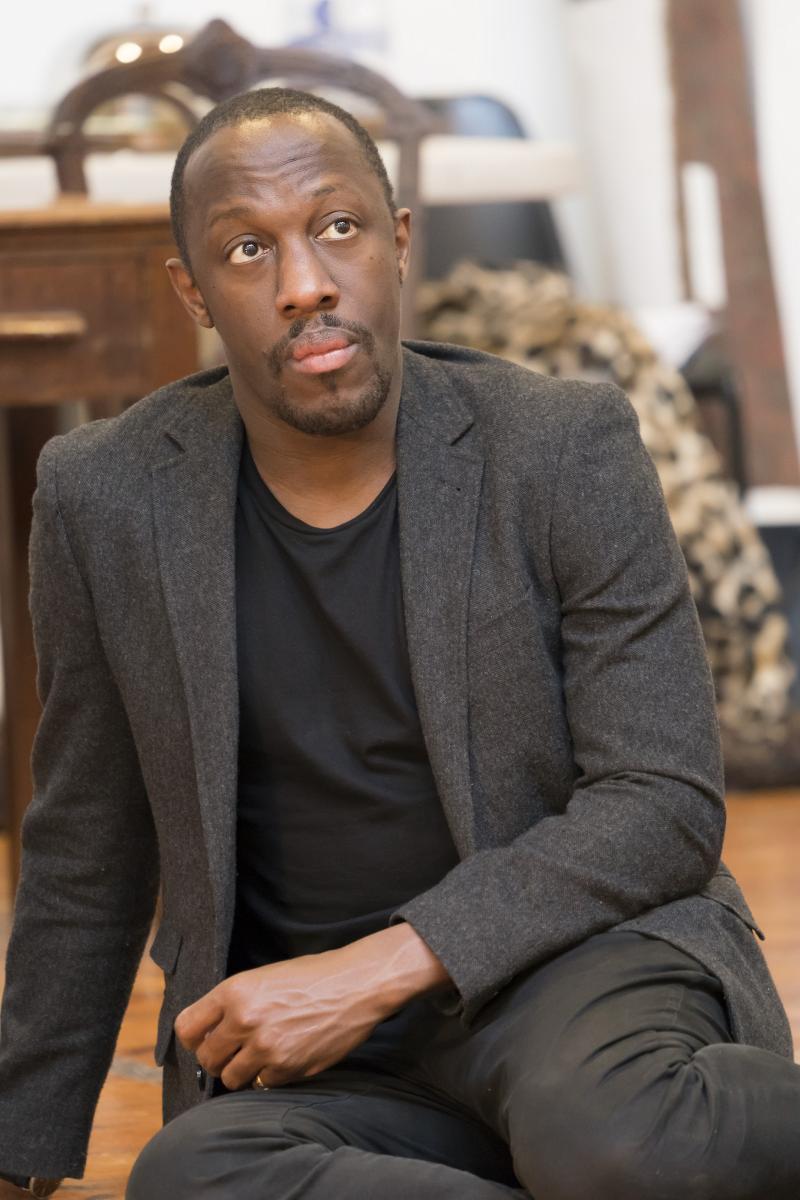Interview: Giles Terera Talks ROSMERSHOLM

Giles Terera is an Olivier Award-winning actor for his portrayal of Aaron Burr in Hamilton. Since leaving the American Revolution at the Victoria Palace Theatre, he has staged a workshop of his play The Meaning of Zong at the Bristol Old Vic.
He is now part of the cast of Rosmersholm, opening soon at the Duke of York's Theatre.
Who or what inspired you growing up?
My godmother was a woman called Reba Younge. She was the mother of the journalist Gary and former Chief Creative Officer of the BBC Patrick Younge.
She had gone to school with my mother in Barbados and they happened to find themselves in the same town of Stevenage years later when they had both moved to England. The Younges lived in the next road to us.
As you can imagine from her sons, she had a formidable intellect (she taught at our school), but perhaps more important was her generosity, community spirit and passion to help and encourage others.
She organised events for the town, summer activities and programmes for young people, fought for and lent her support to numerous social justice issues within our community. The whole town respected and loved her.
She passed away when I was in my teens and to this day I think of things she said or did to encourage me. I still think to myself - what would Auntie Reba do?
I also know that there are countless people who came from our town who will have children, who raise their families and go about their lives benefiting from her teaching, advice, encouragement, and inspiration.
She taught me the value of hard work and the importance of mentorship. That nothing is impossible. A brilliantly funny, tireless and larger-than-life personality. A real inspiration.
What made you want to become a performer?
There was never a time where I wasn't performing in some way. Making up stories. Trying to make everyone in class laugh. Doing impressions of people. Singing. There was never an actual moment where I said, "I want to become an actor". It was just something I did.
The first play I was in at school was The Wizard of Oz. I played the scarecrow. It felt very natural to me to be standing in front of people, telling stories and pretending.
How has life been post-Hamilton?
I'm not sure there is such a thing as post-Hamilton! Once you've stepped onto that ride, you're always on it. I think about the piece and Aaron Burr every day. I still have dreams as Aaron Burr.
From my first meeting until the time I left the show was two and a half years. A lot happened in that time. Doing the show is such a commitment that it's only been afterwards that I've been really been able to reflect, consider and feel proud of the things we were able to achieve. I also miss my brothers and sisters in the show very much.
I wanted to do Hamilton partly to stretch and challenge myself. So, moving forward from the show I am attracted to new challenges. Ibsen's Rosmersholm is appealing for that very reason.

Rosmersholm in rehearsal
What is Rosmerholm about?
Rosmersholm is a play about a young man who is the head of a powerful and influential dynasty, torn between his traditional heritage and the possibility of an idealistic radical future.
How has it been adapted for today's audiences?
I think Duncan Macmillan has written a brilliant new adaptation of Ibsen's play. Great plays can shock and surprise you, and the thing that struck me about the play is that Ibsen could have written it yesterday.
There is so much about the play which speaks directly to the situation we find ourselves in today in our society. Deep social divisions. Widening gulfs between the classes. Growing dissatisfaction with the existing political model and a real feeling that massive change is unavoidably present and up for grabs.
Duncan and Ian have done a brilliant job in bringing forward the elements within the story which make it vital, forward-moving and alive, whilst maintaining Ibsen's achingly beautiful images and thoughts.
Why did you want to be a part of this new adaption?
On a personal level, I am drawn to projects which I know will challenge and stretch me, and then on another level I am drawn to stories which I feel speak to the world which we live in right now - and I feel that Rosmersholm 1000% does.
Another attraction to the project is that Ian Rickson is a director I've admired for a long time, but never had the opportunity to worth with. But, primarily, there is always a sort of mysterious connection or feeling about the character when I first read the play. If that is not there when I read a play, then I can't do it.
Please tell us about the character you play
I play Andreas Kroll, the brother-in-law of the play's protagonist Rosmer. In the play, Andreas attempts to prevent Rosmer from turning his back on his traditional heritage to embrace radical political reform.
How does bringing a character to life compare to seeing others bring your work alive, such as your recent workshop of The Meaning of Zong?
It's very hard to be objective when one is performing a character in the theatre. It's your own eyes and ears and lungs and emotions that the character is breathing through. That's one of the reasons directors are so important. Though as actors, we do have to hone our observational skills and especially our instincts.
When I write a piece and observe others bringing those characters to life as with The Meaning of Zong, it's a very different experience. One that I love. When one observes others, it teaches you things about the character and relationships which you may not have been aware of.
How do you balance spinning so many plates as a performer and creator?
I love telling stories and am fascinated by people and people's behaviour. When I'm anywhere in the street, the thing I love to do most is observe people and try and work out what their story is - a couple on a train; an old woman pushing an empty pushchair; someone crying.
What's happening to this person? Why am I drawn to look at them as opposed to the hundreds of other people around me? Even though out in public, there is often nothing being said, or I cannot hear what's being said, is a story still being told? If so how? Why?
Stories have always fascinated me. When I was young and at school, I played instruments and was in bands. Pretty early on I began writing my own songs. So, it was always very natural for me to write and perform my own things. I also had a great teacher at drama school who always encouraged us to create our own work.

What advice would you have given yourself ten years ago?
The same advice I would give myself today or when I was a child: be brave because life is short.
Any other upcoming projects you can tell us about?
My play, The Meaning of Zong, is going to be performed next spring. I am super excited about and proud of that.
I'm also close to finishing a guide book for young actors and theatre artists called The Balancing Act. Encouraging young artists is something I feel very strongly about.
Why should people come to Rosmerholm?
A question often asked is: can theatre change the world? Can it really change anything?
I think that the great writers challenge us to question. Question ourselves and the world we live in. They prompt us to debate and examine. To converse. To argue. To doubt. To engage. Great writers make us think, and it is thoughts which change the world.
"All men are created equal...", as Shakespeare says, "There is nothing good or bad but thinking makes it so." When we think, then we engage, and when we engage then we will do something about the society or world we live in.
Rosmersholm is a play absolutely for now. Our entire country seems to be asking of our society, "This isn't working. Is there a better way?". People should see this play because it seeks to address those questions.
Who would you choose as your second in a duel?
Lin-Manuel. Because if I got killed there's no one better to tell my life story.
Rosmersholm at The Duke of York's Theatre 23 April to 20 July
Photography credit: Johan Persson
Comments



